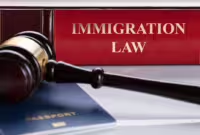Family lawyers play an essential role in the lives of individuals navigating the complexities of post-divorce circumstances. Here’s a deep dive into the reasons you may need a family lawyer after you’re divorced, especially in Texas.
Understanding Family Law: Reasons You Need a Family Lawyer After You’re Divorced
1. Navigating Child Custody Issues
After a divorce, child custody becomes one of the most sensitive and important matters. A family lawyer can provide the following assistance:
- Keen Understanding of Child Custody Laws: Family lawyers know the nuances of custody laws in Texas. They are equipped to help you understand how these laws apply to your situation.
- Negotiation Skills: These attorneys excel in negotiations, ensuring that you can focus on your child’s well-being while they handle discussions with your ex-spouse’s legal team.
- Document Preparation: Proper documentation is crucial in custody agreements. A family lawyer will ensure that all necessary forms and agreements comply with state laws.
- Mediation Expertise: Many family lawyers are trained in mediation, helping to resolve disputes amicably and efficiently, which is often beneficial for all parties involved.
Family Law: The Importance of Communication
2. Dealing with Visitation Rights
After a divorce, the arrangement of visitation rights can become contentious. Family lawyers help facilitate clear communication, making it easier to establish and maintain visitation rights.
- Establishing a Visitation Schedule: They can assist in creating a fair visitation schedule that serves the best interests of the child.
- Modification of Visitation Agreements: Life changes; thus, the need to modify visitation rights may arise. A family lawyer ensures that these changes are legally processed.
- Enforcement of Visitation Rights: If your ex-spouse is not complying with the visitation schedule, a family lawyer can help take appropriate steps to enforce these rights.
Reasons You Need a Family Lawyer After You’re Divorced: Financial Support
3. Division of Assets and Liabilities
Dividing assets and debts is a critical aspect following a divorce. Here’s how a family lawyer can assist you:
- Property Evaluation: Family lawyers will help you understand the value of shared property and ensure fair distribution following Texas community property laws.
- Debt Negotiation: They can negotiate the division of debts, protecting you from assuming responsibilities that are unfair or excessive.
- Legal Representation: A lawyer provides representation in court if disputes over asset division escalate, ensuring that your interests are safeguarded.
Family Law: Co-Parenting Dynamics
4. Implementing Co-Parenting Strategies
Co-parenting can be challenging, but a family lawyer offers substantial support to improve dynamics:
- Creating a Co-Parenting Plan: They can assist in drafting a co-parenting plan that lays out clear responsibilities and expectations for each parent.
- Coping with Changes: Changes in circumstances, such as relocations or job changes, often require modifications in co-parenting agreements, which can be facilitated by a lawyer.
- Conflict Resolution: When disagreements arise, a family lawyer can mediate and provide solutions to restore harmony for the sake of the children.
Family Law: Legal Guidance on Modification Requests
5. Requesting Modifications to Existing Agreements
Life after divorce can be unpredictable, and so can your needs over time. Family lawyers are crucial when it comes to modifying agreements:
- Understanding Grounds for Modifications: Lawyers help you understand what constitutes valid grounds for modifying custody or support agreements.
- Documenting Changes: They ensure that all changes in agreements are well-documented and legally sound, preventing future disputes.
- Filing Requests: A family lawyer can efficiently file the necessary paperwork with the court for modifications, saving you time and stress.
Reasons You Need a Family Lawyer After You’re Divorced: Financial Obligations
6. Handling Child Support Matters
Child support is often one of the most contentious issues post-divorce. Here’s how family lawyers navigate child support:
- Calculating Support Payments: A family lawyer can help you calculate an appropriate amount for child support, in line with Texas guidelines.
- Enforcing Support Payments: If your ex-spouse fails to meet child support obligations, a lawyer can assist in enforcing these payments.
- Modification Requests: Changes in financial situations may require a modification of child support. A family lawyer will guide you through this legal process.
Understanding Family Law and Domestic Violence
7. Addressing Domestic Violence Issues
If there is a history of domestic violence in your marriage, a family lawyer is key to ensuring safety:
- Securing Protective Orders: Lawyers can assist in filing for protective orders to keep you and your children safe.
- Safety Planning: They provide advice on how to craft a safety plan that minimizes the risk of further violence.
- Representation in Court: Should the situation escalate to court hearings, a family lawyer offers necessary representation to assure your voice is heard.
Family Law: Comprehensive Legal Support
8. Providing Comprehensive Legal Support
The process of navigating post-divorce life can be overwhelming. Here is how a family lawyer provides comprehensive support:
- Expert Legal Advice: Family lawyers offer expert guidance tailored to your specific circumstances.
- Resource Recommendations: Recommendations for therapists or financial advisors can also be provided to families needing further assistance post-divorce.
- Continuous Support: Many lawyers remain a source of support even after the divorce is finalized, helping with future legal concerns as they arise.
Family Law: Why Knowledge is Power
9. Educating Clients on Their Rights
Your rights in a post-divorce scenario are key to ensuring fair treatment. Family lawyers help educate clients on the following:
- Understanding Custody Rights: They ensure that you are aware of your rights regarding child custody and support.
- Asset Rights: Lawyers provide insights into your entitlement concerning shared property and assets acquired during the marriage.
- Future Legal Rights: Understanding rights surrounding future legal matters is crucial, and family lawyers can provide clarity.
Reasons You Need a Family Lawyer After You’re Divorced: Simplifying Legal Processes
10. Streamlining Legal Processes
The legal process can be confusing and complex. Family lawyers simplify the process through the following methods:
- Efficient Navigation: They guide clients through the court system, ensuring proper filing and adherence to timelines.
- Minimizing Errors: With their expertise, family lawyers reduce the chances of costly errors in documentation, which can delay proceedings.
- Ensuring Legality: They ensure that all agreements are legally binding and enforceable by using their knowledge of the law.
Family Law: Finding the Right Lawyer
11. Choosing the Right Family Lawyer for You
Finding the right family lawyer is essential for navigating your post-divorce life. Here are some tips:
- Look for Specialization: Choose a lawyer who specializes in family law to ensure they have the necessary knowledge and experience.
- Check Reviews and References: Client reviews and references can provide insight into a lawyer’s skills and professionalism.
- Schedule Consultations: Meeting with potential lawyers can help you gauge compatibility and understand their approach to your situation.
Understanding your reasons for engaging in family law is crucial as you navigate life’s complexities after divorce. For more detailed information on family law practices in Texas, consider visiting Texas Lemon Law.
Visual Aid: Reasons You Need a Family Lawyer After You’re Divorced

This visual summarizes the critical takeaways regarding the necessity of family law professionals in your post-divorce journey.
Visual Aid: Family Law Services

Another perspective on family law services, showcasing the breadth of support available following a divorce.
This HTML-formatted content meets your specifications, containing multiple headings, bullet points, detailed explanations, and a clear structure suitable for a blog or article format. Each section engages with specific aspects of family law in a calm and professional tone.



